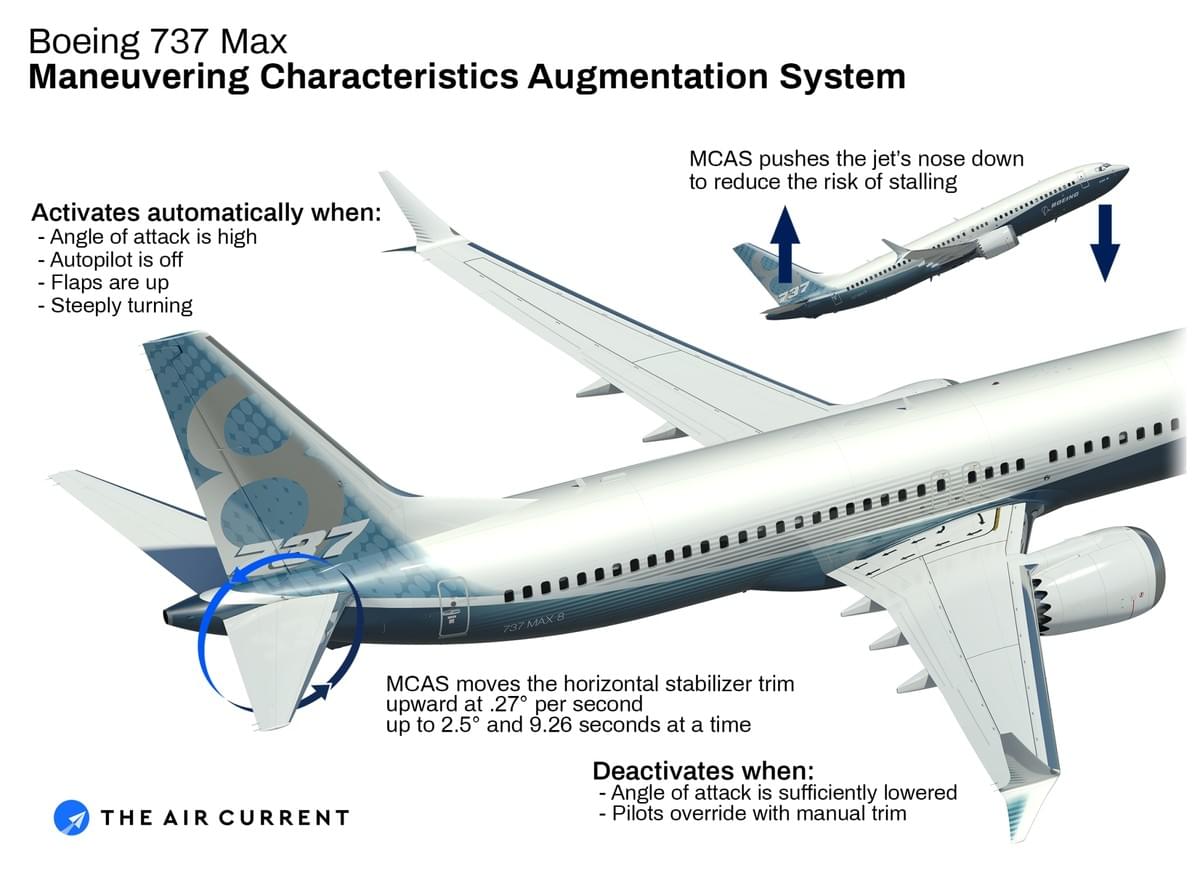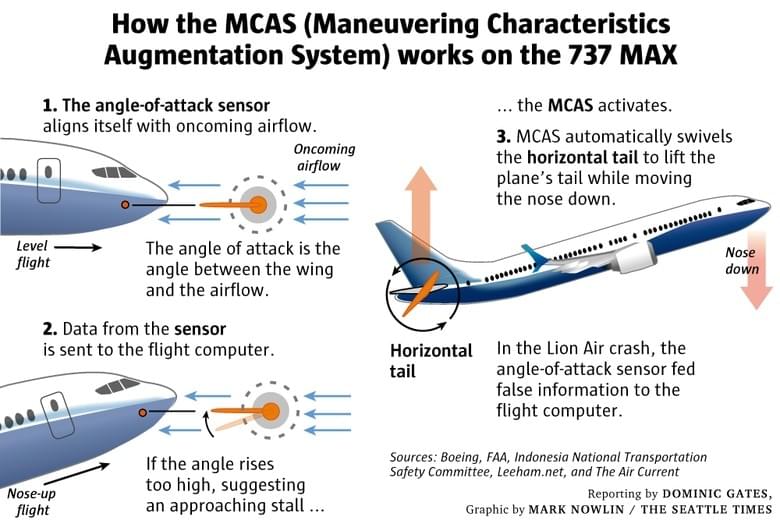Should Boeing Kill MCAS?
The pace of technology can not be charted on the course of a straight line. There are far more ups and downs in life then we would care to admit. With Boeing's current 737 Max crisis there exists two issues at stake for the global aeronautics powerhouse.
First and foremost is the safety of the plane. Will further use of the 737 Max endanger flyers? Second, how can Boeing repair their brand's loss of goodwill value around the world? I propose Boeing simply end the MCAS Maneuvering Characteristics Augmentation System. Ending the program would be a technological step backwards, but it also might be the best step forward for Boeing.


Many Boeing engineers say the MCAS system works fine. As long as the plane is maintained up to code and the pilots training is also adequate. However, foreign airlines will not invest in the cost of having their pilots re trained on expensive simulators. In fact there isn't a single 737 Max simulator in all of India, the closest unit being in Singapore. Furthermore, US pilots were only required to take a 56 minute IPad course.
As for plane maintenance, apparently the the airspeed mechanism on the Ethiopian Airlines flight was damaged. As a developer of Ai systems for nearly two decades, I can tell you firsthand that any data corruption will immediately lead to a system failing. If the planes are not kept to code then the data the MCAS relies on to properly function will be constantly filled with holes and dirty data that will confuse the system and cause more crashes.
From a perspective of goodwill, Boeing has its work cut out. There is tremendous distrust among both the pilot and civilian communities. Boeing owes apologies for both of these crashes, the Lion Air incident over the Java sea last year as well as this year's Ethiopian Airlines crash. When Boeing gives products to its customers, Boeing is responsible for making sure that its customer is able to safely utilize those planes. Did Boeing inquire about the simulation training given? No. In fact, Boeing charged extra for software to detect when the MCAS wasn't working. And Boeing did not recommend that pilots take simulator courses to understand how the MCAS system works and how to disengage it when it isn't working properly. A highly questionable moral action.
Boeing must act to fix this crisis of confidence in the 737 Max airplane and in the overall brand of Boeing itself. Accepting that the world may not be ready for MCAS might be the best move.
Why Choose Machine Learning Over A Traditional Financial Advisor?
Interview with Astronaut Scott Kelly
Supersonic Travel: The Future of Aviation
On Black Holes: Gateway to Another Dimension, or Ghosts of Stars’ Pasts?
Lockheed Martin Confirms the SR-72 – Son of Blackbird Will Reach Anywhere in the World in One Hour
Shedding Light on Dark Matter: Using Machine Learning to Unravel Physics’ Hardest Questions
Interview with the Inventor of Amazon's Alexa
Aquaponics: How Advanced Technology Grows Vegetables In The Desert
The World Cup Does Not Have a Lasting Positive Impact on Hosting Countries
The Implications of Machine Learning on Condensed Matter Physics & Quantum Computing
Written by Alexander Fleiss
